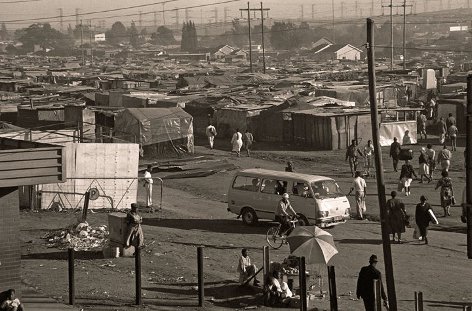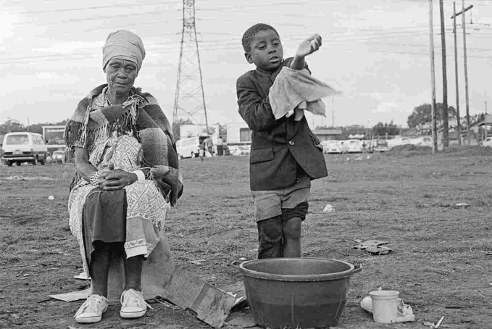Tembisa community oral history and photographic project (2010-2011)

Tembisa, an Nguni name meaning Promise or Hope, is a large township situated to the north of Kempton Park on the East Rand, Gauteng, South Africa. It was established in 1957 when black South Africans were resettled from Alexandra and other areas in Edenvale, Kempton Park, Midrand and Germiston.
Purported to be the one of the largest townships in the Southern hemisphere, Tembisa has had its fair share of political turmoil, particularly in the early 1990s, as violence erupted in the lead up to the first democratic elections but little has been recorded about its history, particularly when compared with Soweto, the other large township in the Gauteng province.
In 2010 - 2011, SAHA will be working with schools and community interns in Tembisa to conduct oral histories and record contemporary life in Tembisa, using images of the township in the 1980s taken by Gille de Vlieg, activist and Afrapix photographer, as a departure point, and creating an exhibition and short publication about Tembisa, comparing and contrasting stories and images of Tembisa from the past and present.

Through consultation with the community, four local interns will be identified and trained to conduct life history interviews, transcribe interviews and conduct basic archival research by SAHA and the History Workshop at the University of the Witwatersrand. These interns will then shadow the lead oral historian in collecting life stories from community members in Tembisa.
Historical materials from the archive, primarily photographs taken by Gille de Vlieg, but also news clippings and other documentary sources will be compiled and used so as to provide a starting point for people to speak, both in group situations, and individually, about their experiences of living in Tembisa. In addition, the interns will also work with Gille de Vlieg to photograph present-day Tembisa.
In early 2011, SAHA, with the support of the local interns, will work with high schools in Tembisa to train educators and learners in oral history methodology and learners will then be tasked with conducting oral histories in Tembisa and presenting their projects to their peers.
A report based on the interviews, archival research and photographs will be written. This report will in turn be the basis for a popular book on the area. The interviews and photographs will also be used for the development of an exhibition kit on the history of Tembisa, for exhibition in Tembisa in September 2011.
For more information about this project, please contact archives@saha.org.za